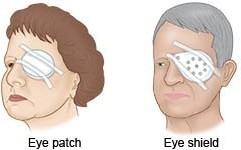The nurse is assigned to provide care for a client who is scheduled for a laparoscopic cholecystectomy in two hours, at 0900. What nursing action is most important?
Determine when the client last had pain medication.
Offer to assist the client to the restroom to void.
Review postoperative instructions with the client.
Confirm that the client has been NPO since midnight.
The Correct Answer is D
NPO status is crucial before a surgical procedure, especially when anesthesia will be administered. It helps prevent complications related to aspiration of gastric contents during the procedure. Failure to adhere to the NPO status can lead to serious respiratory problems, such as aspiration pneumonia.
It is important for the nurse to confirm the NPO status with the client to ensure that they have followed the appropriate fasting guidelines. This should be done to ensure the client's safety during the surgery.
While determining when the client last had pain medication, offering assistance to the restroom, and reviewing postoperative instructions are important aspects of preoperative care, confirming NPO status is the most critical nursing action in this particular scenario.
Nursing Test Bank
Naxlex Comprehensive Predictor Exams
Related Questions
Correct Answer is ["A","B","D","F"]
Explanation
A) Cerebral edema: Brain injury or trauma can lead to swelling and increased intracranial pressure.
B) Correct- Near- drowning causes acute asphyxia because it prevents the person from breathing in oxygen and exhaling carbon dioxide. Asphyxia is a condition where the body is deprived of oxygen, which can lead to loss of consciousness, brain injury, or death.
C) Incorrect- Hypertension is not a common complication following near-drowning. The focus should be on potential brain injuries and respiratory distress.
D) Correct- Near-drowning can lead to aspiration of water or other substances, which can result in respiratory distress.
E) Incorrect- hyperthermia is not likely to occur in this case because the child was exposed to cold water.
F) Correct- Head trauma can lead to bleeding within the brain, such as a subdural hemorrhage.
Correct Answer is B
Explanation
After retinal detachment surgery, it is crucial to protect the eye and the surgical repair site from accidental trauma or pressure. Providing an eye shield helps to shield the eye during sleep when the client may not have conscious control over their movements.
This can help prevent inadvertent rubbing or bumping of the eye, which could potentially disrupt the surgical repair and hinder the healing process.
Obtaining vital signs every 2 hours during hospitalization is a routine nursing intervention for postoperative care in general but is not specific to retinal detachment surgery. The frequency of vital sign monitoring may vary depending on the client's overall condition and the healthcare provider's orders.
Teaching a family member to administer eye drops may be necessary for the client's ongoing care, but it is not specifically related to the immediate postoperative period. Eye drop administration instructions can be provided as part of the client's discharge teaching.
Encouraging deep breathing and coughing exercises is a general postoperative intervention that promotes respiratory function and helps prevent complications such as pneumonia. While important for overall postoperative care, it is not specific to retinal detachment surgery.

Whether you are a student looking to ace your exams or a practicing nurse seeking to enhance your expertise , our nursing education contents will empower you with the confidence and competence to make a difference in the lives of patients and become a respected leader in the healthcare field.
Visit Naxlex, invest in your future and unlock endless possibilities with our unparalleled nursing education contents today
Report Wrong Answer on the Current Question
Do you disagree with the answer? If yes, what is your expected answer? Explain.
Kindly be descriptive with the issue you are facing.
